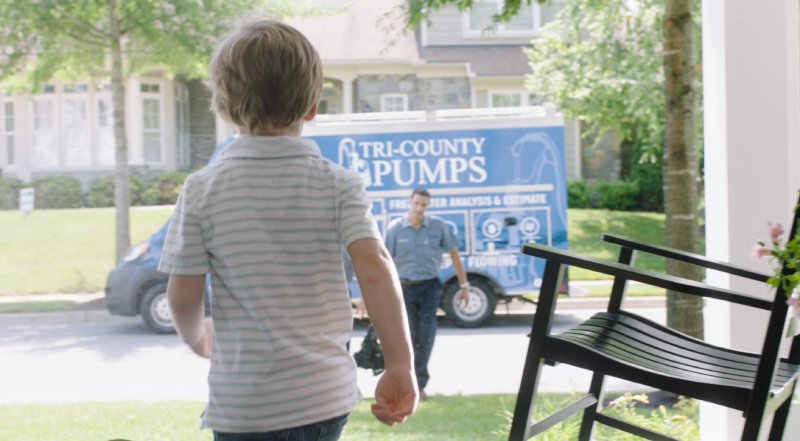Some people might use the terms water filters and water softeners interchangeably, but they are not the same thing. One can a solution for water purification while the other can be a system for removing hard water. Not enough explanation? Well, here is a detailed comparison between a water softener and a well water filtration system so that you know which one is perfect for you.
Water Softeners Vs Water Filters
The Process
Firstly, you need to understand the process by which water filters and water softeners work. It will put things into perspective for you, so that you can wisely choose what you want for your house.
Water Softeners
Water softeners are used for treating hard water. Hard water has excess calcium and magnesium in it. A water softener works by letting hard water into a retaining tank where the ions react with the calcium and magnesium present in the water. The ions can either be neutral ions, or more commonly, sodium ions of salt. The ions are swapped and the water is softened and then stored in a tank for use around the house.
Water Filtration Systems
As for a water filter, think of it like a cylindrical fine mesh sieve. It works by letting the contaminated water in the filter body and the filters, present on each level, sieve the metals, particles, and other impurities from the water, and then clean water comes out from the other end.
A water filter is great if you have contaminants in the water and want to remove them. They are also available in different varieties, like jug filters, over-the-countertop filters, faucet filters, whole-house water filters, etc.
The Mechanism
Water filters and water softeners work on different mechanisms and they’re poles apart when it comes to usability.
Water Softeners
A water softener works on the mechanism of the ion exchange process. Hard water usually contains a lot of calcium and magnesium, which prevents the formation of lather and leads to a lot of wastage of detergent and soap. This is why a water softener is used to remove these ions.
The ions are replaced by sodium ions or neutral ions in the ion exchange process and the water is softened and ready for use around the house. However, if you choose a tap water softener, soft water can be used from that tap only.
Water Filtration Systems
As for water filtration systems, they work solely on the mechanism of gravity. The water usually enters the filter from above. This causes the heavy sediments to settle at the bottom of the filter, allowing water to freely pass through. This is also applied to metals and other sizable particles that could be making the water murky and unpleasant to drink. This is why filters are used in the first place.
If the contaminated water is left undisturbed, you can see that all the dirt and debris settle at the bottom. So, essentially, a water filter accelerates the process to give you clean and clear water on demand.
However, different types of water filters may work on different mechanisms. For instance, a water distiller turns water into steam and then back to water.
What Does It Remove?
The next order of importance is the consideration of things that these filtration systems remove. Remember, water filters and water softeners both do different things and you need to know what needs to be removed from the water to get the perfect water treatment system for your house.
Water Softeners
A water softener only removes excess minerals from water that are calcium and magnesium. If you have hard water coming through your taps, are seeing scale deposits on clothes, and dishes, and the washing detergent doesn’t produce lather, then you need a water softener.
A water softener cannot filter out sediments and contaminants and you’ll need a separate system for that.
Also, already-softened water doesn’t get more soft in a water softener, so if that’s what you’re thinking, then it’s not true. Soft water will come out unchanged from the water softening process.
Water Filtration Systems
As for a water filtration system, it removes dirt, sediments, metals, gasses, and microorganisms from the water. There can be lots of sediments and even metal particles in the water that can be hard to remove, so this is where a water filter is used. A filter will get rid of all of these things but it won’t turn hard water into soft water. For removing dissolved calcium and magnesium, you’ll need to invest in a water softener.
Keep in mind that not all water filtration systems remove all contaminants. This is why your tap water or well water is tested first and then the expert suggests the right water filtration system for your house.
Ease Of Use
The next factor that comes to mind is the usability these filtration systems.
Water Softeners
Water softeners are easy to use, once they’re installed, but you can’t install them by yourself. It takes a professional to install the entire water softener assembly and it also needs to be attached to the different pipes that will flow water throughout the house.
So, it’s not something that you can do, even if you know your way around plumbing. After water softener installation Berkeley County, the water softener is very easy to use and you’ll love its fluid performance.
However, if you’re using a tap water softener or a shower head water softener, they are easy to install.
Water Filtration Systems
A water filtration system is also difficult to install if we are talking about whole-house water filters. As there are many types and varieties of water filters, you will also find easy to use and install water filters like jug filters, shower filters, and tap water filters.
Price
Let’s talk about the price tags because this is also another important factor that people tend to go over.
Water Softeners
Water softeners are the more expensive ones of the two because they’re a full-blown assembly and they’re fitted in the house. They’re also bigger than water filters, so you need a lot of space for them.
Water Filtration Systems
Water filters are very much reasonable in price and as there are so many types, some are also portable. You can install them wherever you want, and you’ll get clean and fresh water from the taps. However, whole-house water filters tend to be expensive.
Maintenances
The maintenance of both systems is also very important. You don’t want to sit around a certain water purification system and try to fix it every day.
Water Softeners
A water softener needs to be maintained every couple of months or so, especially if you’re using a salt-based water softener. The assembly can accumulate sludge at the bottom that needs to be removed. This process is known as regeneration. This is important because you want the water softener to work efficiently as time goes on.
Also, you might want to keep an eye on the valves and pipes of the water softener, so that they don’t get clogged. Other than that, it’s a lifesaver for your home.
Water Filtration Systems
As for a water filtration system, the filter or cartridge needs to be changed every month or so depending on how dirty the water is and how much filtration you require daily. But the good thing is that they’re really easy to remove and re-install and you’ll be done in 5 to 10 minutes max. However, you do need backup filters at all times because you never know when the existing one malfunctions.
Conclusion
Water softeners and water filtration systems, both have different purposes and they each are used when there is a different issue with the tap water or well water. If you’re confused about types of water filters and water softeners, consult an expert to help you choose between various types like undersink water filters, faucet-mounted water filters, and whole house water filtration systems Jefferson County.



